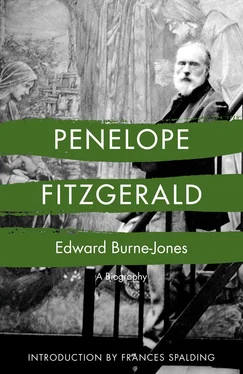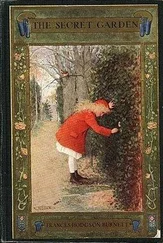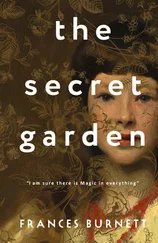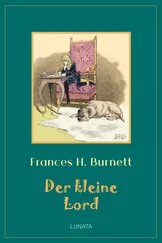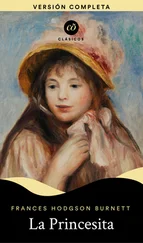Mr Jones’s shop was at 11 Bennett’s Hill, itself quite a new and very respectable street in a district which had recently covered green fields with raw pavements. ‘The town itself has walked uphill’, in the words of the local comic singer Dobbs, the population having nearly doubled between 1821 and 1831. At the corner of the hill and Waterloo Street was a News and Commercial room; near to it, with a bold classical portico, was the Society of Artists’ building, which was probably the reason why Mr Jones opened as a frame-maker close by. All this was decorous and decent, but inescapably near was a frightening Birmingham which lay in wait, after a not long process of ‘coming down’, for the failed small clerk and tradesman. This was the swarming city of ‘Brummagem roughs’ and Irish immigrants, which was neither policed nor lighted (except in winter) until 1839; Newman, in his first days at the Oratory, said that the Irish congregation ‘made the air like drinking hydrogen or carbonic gas’. Although the town escaped the worst of the cholera epidemics, these were the hungry thirties, and the masses of operatives (including working children of seven and upwards) were unskilled and unsettled, going home to crowded ‘courts’ and rookeries where dozens of families clung together, sharing one tap and one privy. Birmingham was said to have over a thousand of these red-brick warrens, more than any other city, and among them were ‘scores of houses of ill-fame’. In 1848, when after a long agitation the Government introduced the Health of Towns Bill, the official Inspector to the Board of Health respectfully laid before them for consideration that ‘the borough of Birmingham is not so easily healthy as it may be, on account of unpaved streets, confined courts, open middens and cesspools and stagnant ditches’. The Birmingham ‘wares’ themselves, on the other hand, exhibited an alarming vitality. Thomason’s in Church Street claimed that he could do all that Cellini did, and cast anything in bronze, including life-size statues; Pemberton’s would imitate any pattern in ‘metallic bedsteads’, Jennens and Betteridge would manufacture any object in papier-mâché inlaid with pearl shell. It would be quite wrong, of course, to think of all these products as shoddy: Gillott’s took pride in the fact that Charles Reade had written the whole of It’s Never Too Late to Mend with only one of their steel pen-nibs. The ‘thousands trades’ had their thousand separate voices, and though the city was never quite without music – rarely, indeed, without Handel’s Messiah , which was given at festivals from 1823 onwards – it was hideous with the volleys fired off in iron-lined proofing-houses where the gunsmiths tested their weapons all day. ‘At night,’ Carlyle wrote in Past and Present , ‘the whole region burns like a volcano, spilling fire from a thousand tubes of bricks’. The streets at large reeked of drunkenness, the universal resource. The Town Council, when Edward Burne Jones was six, received a report from the Borough Magistrates to the effect that ‘the present police force was totally inadequate to maintain the peace’. In fact, in the Chartist Riots that year Mr Jones was sworn in, surely one of the most unlikely of special constables, and for a few weeks of terror of the streets seemed ready to crawl uphill and overwhelm them.
A queer, close life took its quiet course in the back shop in Bennett’s Hill, bolted against Saturday night drunks. Mr Jones and his friend, Mr Caswell, turned over pictures left for framing, and the old dark canvases which Mr Caswell, who was retired, liked to buy cheap and touch up; at one time they got what must surely be a Turner, but ‘the sea was too quiet’ and Mr Caswell added a number of large waves; or they would talk about ‘the first historical painter that Birmingham had produced, and how Mr Gillott the pen-maker had paid £1,000 for a historical picture and felt disgusted, and then they would shake their dear old heads’. 4To the little boy the stock-in-trade was repulsive, dark and oily-smelling, in faded frames. Like most lonely children, he drew pictures – mostly of demons – to give substance to the stories he told himself, but the feeling at 11 Bennett’s Hill was that nothing should be wasted, and Mr Caswell immediately ‘made me draw a coffee-pot with all the reflections (and no doubt it wasn’t a bad thing to do) but when you looked closer demons were coming out of the pot’. 5Music he loved, but he scarcely realised this yet, since there was no good choral singing at St Mary’s and Mr Jones could not afford, or did not choose, to go to concerts. Sixty years later, Burne-Jones said that he had passed a childhood without beauty. There was none, certainly, in the little house itself or the ‘chairs, carpets, tables and table furniture each duller and more commonplace than the other’, or the picture of a cemetery over the ‘hard square-featured clock’, showing the tombs of Miss Sampson’s Yorkshire relatives.
Beauty, therefore, was something the child could only recall in fragments, which could not really be distinguished from happiness; he meant such things as the smell of currant-loaves and wallflowers in Mr Caswell’s kitchen-garden, and rare outings with Mr Jones, who, wretched though his taste in art might be, ‘would walk tired miles to see a cornfield’. There were also the pretty faces of the Miss Choyces, farming cousins in Warwickshire, where he was sent occasionally – it was a milk and cheese farm – in the dubious hope of his growing stouter. The Choyces took him on one occasion to see the Cistercian monastery at Charnwood, and he dreamed for years of being shut away in peace behind its great doors. But, for Burne-Jones as for Ruskin, beauty was not inherited but earned. Ruskin, so he tells us in Praeterita , learned to love the movement of water through watching the gutter at the back of a baker’s shop; Burne-Jones began to love plant form by being allowed to pick one wall-flower. Beauty they both felt as a craving which could be satisfied and perhaps only valued – for as artists neither of them ceased to be Evangelical at heart – only after a hard struggle. Ruskin, however, also warns us that those who are starved of beauty in childhood will find the love of it in later life ‘rampant and unmanageable’.
Many of these details were recalled by Burne-Jones in the last few years of his life and taken down by his faithful studio assistant, Thomas Rooke. These notes were of course used by Lady Burne-Jones in her Memorials , and yet without falsification (that was impossible to her) she seems to have made her husband’s childhood gentler and more pathetic than it really was. She left out the child’s horrors, which are not less real when they are overheard and half understood. The bird-scarer passed the gate on the way to the open fields, and would stop suddenly and pull horrible grimaces. 6In a house a few doors down, a father had cut off a boy’s fingers when he wouldn’t take his hands off the cloth. Another had mistreated his son so horribly that one of them had taken poison, and though he was brought round the poison ‘worked itself out’ years later, making him mad. 7Three miles along the road out of Birmingham a lonely shack had to be passed where a man had lived who had gone crazy through disappointment in love; the pond where he had drowned himself was still in front of the shack. 8Terror attached to certain names and words – ‘progeny’ was one – and to the sight of the swollen full moon. All these were lonely fears, but less so than his first experience of education, when he was seven years old. His aunt, Mrs Choyce, took him to a small school at Henley-in-Arden during one of his country visits and stayed to talk to the master while Ned went on alone into the classroom, where he met ‘a shout of derision’ 9from the boys he when they saw how small he was. Writing fifty years later to Olive Maxse, he described himself as ‘the kind of little boy you kick if you are a bigger boy’. 10
Читать дальше
